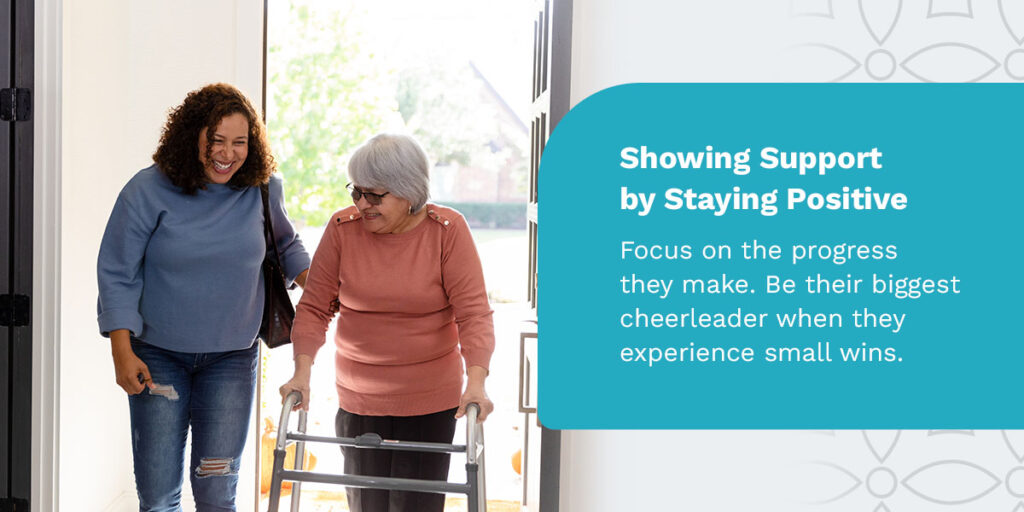How to Support Your Loved One Following Surgery

Recovery after surgery is a slow and sensitive process for older adults. The surgery itself is already nerve-wracking, as the risk of complications is higher for older adults. Couple that with a longer and often more intensive recovery process, and it’s easy to see why older adults need physical and emotional support during and after surgery.
From helping with medications and ensuring the home is conducive to their needs to transporting them to physical therapy appointments and checkups, there are many ways you can care for older adults following surgery.
Returning Home From the Hospital
Returning home from the hospital is undoubtedly exciting. However, it can also be overwhelming for older adults, especially if their mobility has been affected or they have many medications to keep track of. To help make their transition easier, follow these steps to welcome them home:
- Take time off: If you have the flexibility, you may want to schedule some days off following their surgery. If you cannot take more than a few days off, you may want to enlist the help of a professional caregiver.
- Make their home more comfortable: We’ll cover this more below, but before they arrive home, clear the floor of tripping hazards and ensure there’s enough room between furniture for your family member to move comfortably.
- Set up activities: Think of some hobbies for your family member as they recover. You can set them up for success with board games, books, movies, puzzles, mobile games, magazines or sewing to keep them occupied and content.
- Clean up: Nothing says “welcome home” like a clean house. Before your family member comes home, make sure things are clean and shiny. However, remember that you might want to avoid reorganizing — they could get frustrated when something is not in its usual place.
- Take them through the changes: Give your friend or family member a tour of the changes to their home to decrease any feelings of stress.
Supporting older adults after surgery can be both satisfying and overwhelming. Prepare ahead of time, ask their nurses and doctors for any advice, and you’ll enjoy a smooth and informative transition.
Making Their Home More Comfortable
There are many ways to make a home more recovery-friendly and safer for everyone. Think of all the rooms your older adult will visit in the house and how these can be made more comfortable. Here are some ideas:
- Remove unnecessarily obstructive and unsafe furniture, or move it so that it doesn’t block traffic.
- If your friend or family member lives in a two-story home and cannot navigate stairs after surgery, move their bedroom furniture to the first floor.
- Consider purchasing helpful items like nonslip bathmats.
- Ensure the home and your family member’s room have enough lighting to make things easier to see.
- Make sure medications, water, food, plates and silverware are within reach.
- Set your family member up in a room with its own bathroom, and ensure adequate hygiene tools for incontinence episodes.
- Stock up on healthy foods with lots of vitamins, like fruits and vegetables.
Before they come home — or perhaps before their surgery — you can also ask your friend or family member how they want their house set up. For example, they may want their slippery wood floors to be covered with rugs.
Showing Support by Staying Positive
When we use positivity correctly, it can have powerful effects on our psyche and mood. Though this may be challenging when your friend or family member is in pain or frustrated, seeing the best in every situation always helps.

Focus on the progress they make. Be their biggest cheerleader when they experience small wins. Invite family members to liven things up. Encourage peaceful time alone for them to engage in hobbies. And always make sure they know they have people rooting for them.
Changing up the scenery can also make a difference in mindset. If possible, take a walk in the fresh air or set up chairs for stargazing or cloud-watching. You can also take your family member with you on errands. Keeping them involved and active is healthy and stimulating.
If you’re having trouble staying positive, it might be beneficial to share caregiving responsibilities with another person. Finding a professional caregiver can take some of the weight off our shoulders while ensuring your family member is being cared for properly.
Helping With Daily Activities
The surgery recovery process is physically, mentally and emotionally tough. Helping an older parent after surgery means assisting with daily activities like eating, walking, dressing or bathing. Here are some ways you can help them navigate day-to-day recovery:
- Help them get to appointments: Older adults will likely have follow-up appointments after surgery. Help transport them to these appointments and take notes to remember all of the information.
- Encourage movement: While it may be tempting for them to stay still, especially if they’re recovering from knee or hip surgery, it’s not necessarily healthy. Work with their physical therapist or doctor to find ways to incorporate movement or exercises into the day, gradually increasing frequency and difficulty as appropriate.
- Grab things for them: What’s not heavy to you might be too heavy for an older adult as they recover from surgery. If something is too high or too heavy, you can step in. However, try not to step in when they don’t need help, as this can frustrate them.
- Keep track of medications and appointments: Help your friend or family member keep track of their appointments and medications so that they stay on track with recovery. It’s wise to write everything down in a planner or notebook.
Being Mindful of Hospital Delirium
Hospital delirium affects around one-third of patients over 70, especially those who have undergone surgery. Symptoms of hospital delirium can include confusion, difficulty understanding speech, agitation, jumbled memory, hallucinations or disorientation. If your friend or family member experiences delirium after surgery, remain patient and supportive. Make sure they stay hydrated and get adequate sleep, and help orient them to their surroundings by introducing familiar personal items like stuffed animals or photographs.
Keep your family member’s doctor updated on delirium episodes, as well. They can further advise you on what to do and how to support your family member.
Receive Support From a Corewood Care Caregiver

Supporting an older adult after surgery can be a daunting task, and it’s perfectly OK to feel like you’re out of your depth. Getting help from a professional may be the best thing that you can do for your situation. The expert caregivers at Corewood Care can provide hospital-to-home transitional care services, as well as assistance before and after surgery. Contact us online to find the best care option for your friend or family member recovering from surgery.




